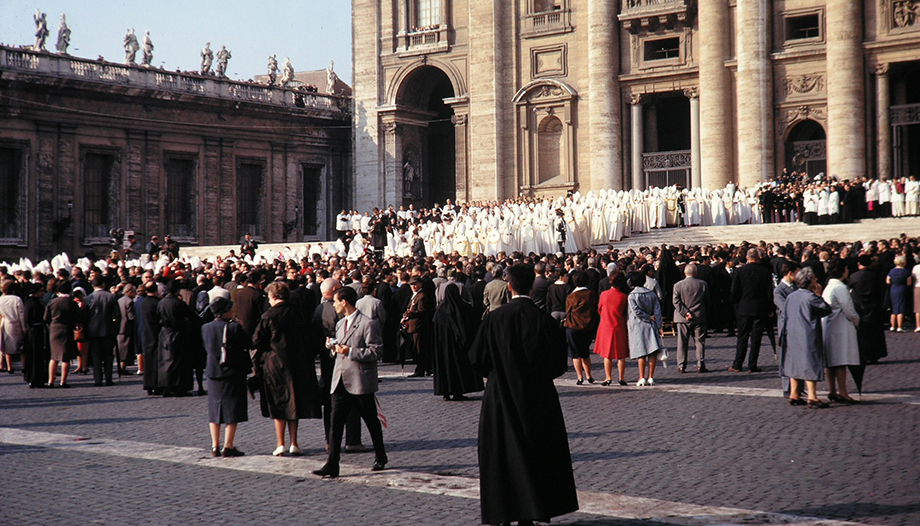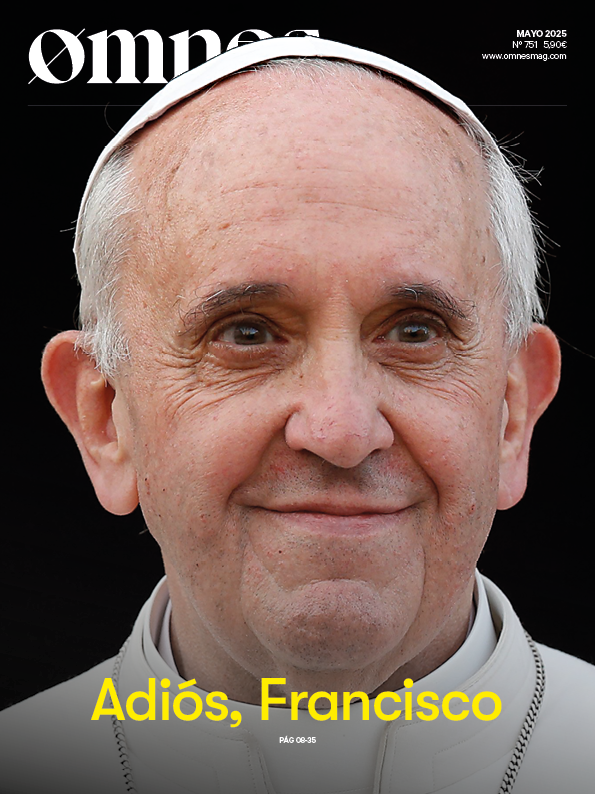The 50th anniversary of the Second Vatican Council's decree on ecumenism has just been celebrated. Unitatis redintegratioIt is perhaps a good opportunity to take stock of the current situation, as Cardinal Kurt Koch, president of the Council for Promoting Christian Unity, did in the spring at the Father Congar Ecumenical Center in Valencia.
The recent history is long. After the approaches to Christians of other confessions by the Popes of the 19th century, the ecumenical movement that arose especially among Protestants bore fruit: the Council described it as a consequence of the "action of the Holy Spirit". John XXIII wanted a council to promote the reform and unity of the Church, Paul VI continued in this direction and the decree on ecumenism established the "Catholic principles". That is, the unity between ecumenism and ecclesiology: Unitatis redintegratio is linked to the Constitution Lumen gentium and to the decree Orientalium Ecclesiarum. In this way, the parameters of ecumenical dialogue are clearly laid out.
Vatican II taught that there are "elements of ecclesiality" in other non-Catholic Christians, but at the same time that the Church of Christ is a "Church of Christ". "subsists" in the Catholic Church (LG 8; UR 4.5). Unitatis redintegratio masterfully describes the ecclesiological situation of the various Christians who are not united to Rome. On the one hand, he considers the Eastern Churches that do not recognize the primacy of the Pope as true (particular) Churches, and admires their spiritual and liturgical tradition. On the other hand, he appreciates the Protestants' love of Scripture, but warns that they have lost apostolic succession and, with it, most of the sacraments (UR 22). That is why they are called "ecclesial communities". In this case, they would have to resolve not only what refers to the primacy, but also to the episcopate. At the same time, it proposes the search for communion in social collaboration and cooperation, in theological dialogue and in prayer and conversion, true motors of ecumenical dialogue. These are the three dimensions in which all ecumenism must develop.
John Paul II reaffirmed these principles in the encyclical Ut unum sint (1995) and showed the closeness to Rome of the Eastern Churches, both Catholic and Orthodox. The Joint declaration on the doctrine of justification (1999) was a milestone and a starting point for theological dialogue not only with Lutherans and Methodists (who have subscribed to it), but also with the Reformed. Benedict XVI promoted theological dialogue with the Orthodox in the Ravenna Document (2007), which studied the way of exercising the primacy as it was lived in the first millennium of Christianity, when all Christians were still united. The defense of creation and the environment has also been a good point of encounter between different Christians, although it must also reach moral and bioethical questions. With the motu proprio Anglicanorum coetibus (2009), the current Pope emeritus pointed out a possible solution to the question of the defectus ordinis for ecclesial communities that, for various reasons, may have lost apostolic succession. At the same time, the need for communion in the faith was established as a prior step to visible unity.
With the advent of the new millennium and globalization, the ecumenical map is changing. The Church has shifted from being predominantly Eurocentric to "worldcentric". In addition, the rapid growth of Evangelicals and Pentecostals has forced the Catholic Church to enter into conversations with them as well. On the other hand, the "ecumenism of blood" - as Pope Francis has called it - has raised certain urgencies and questions different from those raised previously. The three dimensions of dialogue are still necessary: the so-called ecumenism of the hands, of the head and of the heart, that is, in matters of cooperation and social justice, in theological dialogue, and in the promotion of prayer and conversion itself. In recent times, and in preparation for the 500th anniversary of Luther's break with the Catholic Church in 2017, there has been talk of the need for a Joint Declaration around the above-mentioned themes of Eucharist, ministry and ecclesiology.
As opposed to an ecumenism practiced in the past, where ecclesiological indifferentism took precedence over other principles (as in the Leuenberg Concord of 1973), a "reconciled diversity" is now being proposed, where each one knows where he stands with respect to the others, while promoting dialogue in love and truth. Gestures and declarations of closeness between different Christian confessions are becoming a happy routine. Like his predecessors, Pope Francis is demonstrating that ecumenism constitutes one of the priorities of his pontificate. After the road travelled together, with the clarity of ideas brought by the council, the missionary ardor of the current pontificate, the witness of the martyrs of all confessions and - above all - with the action of the Spirit, perhaps interesting ecumenical developments could come in the coming years. A true ecumenical moment.








